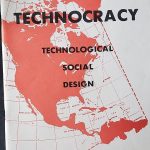4/7/2009
A long, slow, grinding decline — that’s what I fear more than anything. My grandparents were in their early 20s when America entered the Depression; indeed, it must have been depressing after the boom of the Roaring Twenties to encounter such hardship. The Depression dislocated people, mentally and geographically. Unlike today’s fall, where at least some of us seem to think we had it coming, people seemed more shocked by the economic upheavals of that earlier era. And yet there are optimistic investors driving up the stock market on the hope that if they can somehow make those indices bigger, the dark and looming larger problems will go away by themselves. As if it were that easy.
As much as I would like to see an economic upswing that gave me that elusive prosperity America is so touted for, I don’t see how it could possibly happen. There isn’t enough to go around unless some people give some up, and if there’s one thing we’ve learned over our 5,000 year history as humans — people don’t like giving things up. Moreover, as much as capitalism is studied like a science, a lot of it is based on very unscientific emotions such as trust, belief, pessimism, and my favorite, exuberance. We believed and everything went up. We stopped believing and down it came again. Now we’re trying to make ourselves believe again, so we can have prosperity, profits, and free money like before. But those bonuses aren’t available to us all, just for the few who have the read moolah to play the market game.
It’s a really lousy system when you think about it, because the folks who have the wealth have made themselves so indispensable to the real economy that the everyday lives of non-investing people are at their mercy. Like it or not, we’re all tied in. Greed and stupidity translates into loss and potential misery for the rest of us. Thanks guys! I’m happy to live low for the next 20 years so you can keep your goodies.
Maybe the best way to view the vicissitudes of financial life is just to submit to them. Lately, I’ve been trying to view money the way Jesus said we should. When I pay my bills I just think of it as rendering unto Caesar. I work hard for the money, but the money isn’t mine.
I realize that the answer to this is to make more money — a lot more money — but then I wonder if non-capitalists can really make that kind of money and if we could, would we lose our souls in the process? In short, I’m not sure it’s worth what I’d have to become to get it.
So that leaves me right where I started, muddling through and wondering if I’ll ever be financially secure again. This also brings us back to the prospect of the long grinding decline. What if the future is as bad as the present? I’m not 22 anymore, In fact, I’m closer to 52. In 20 years I’ll be almost 70. What if the optimists are wrong and it really does take 20 years to fully work ourselves out of this mess? By then, it will be over for some of us.
So I look around for a lifeline and I see it in alternativism, by which I mean, doing some things differently than we’ve done them before. In general, this means adapting to circumstance and doing what’s practical, while not getting too hung up on outmoded principles we can no longer afford. For some, it means sucking it up and buying incidentals at the Dollar Store or stooping to buy conventional produce. Others may be forced to give up long enjoyed diversions such as restaurant meals and vacations. In all cases, we get to make do with less.
If it were up to me, I’d start by undoing much of what has been done in the last 50 years with the goal of creating a more equitable society. But it isn’t up to me.
Fortunately, there is this thing called natural law that kicks in when things absolutely, positively have to change but people are balking. You know natural law is in operation when the things we rely on go kablooey and the models stop working and it’s “a perfect storm,” bla bla bla. At that point, we can tell ourselves there was nothing we could have done — “nature” took its course and did it for us. The stock market crash of ’29, for instance, followed rational laws of cause and effect but there was nothing anyone at the time could have done to stop it. The same will happen to us if we’re not careful. But waiting for things to blow up on their own is like inviting an audit. Is that really how we want to solve our problems?
The fact is, we could improve the economic lives of most Americans if we wanted to. But instead, we’re bailing out big banks and escalating wars as we follow the time-honored path of preserving the status quo. But as long as we go on trying to preserve an unsustainable system, natural law will continue to operate, destroying those structures that no longer work and, in the process, threatening all we hold dear.
Meanwhile, I feel confident of little except that I would prefer a short ride in a fast machine to a long ride on a downbound train. Or to steal from another great wordsmith, I would prefer to go out with a bang than a whimper.




